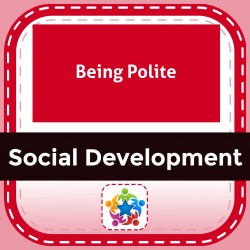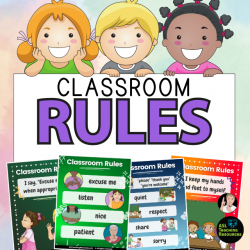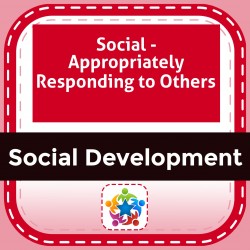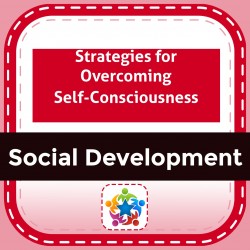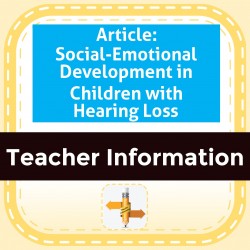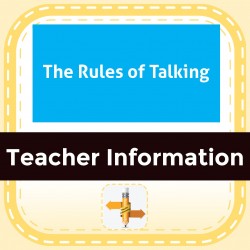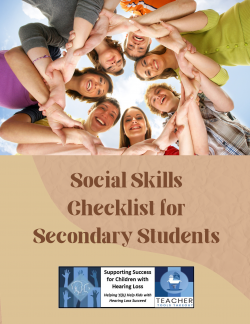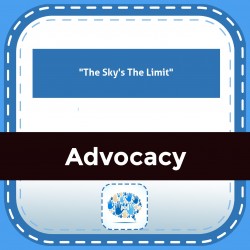Ability Levels
Categories
Resource Types
Age/Grade Range
CCSS
Anchor Standard
Speaking & Listening
Language
Reading
Being Polite
$ 195
Importance of teaching the language of good manners to students with pragmatic language delays. Worksheets include: " please, sorry, thank you, excuse me" coloring page for younger students; workshe
...
et on "please, sorry, thank you, excuse me" for early elementary students; good manners game board with good and bad manners cards to determine moving forward or back; social situation cards for discussion by older students
Class Rules and Expectations Posters ASL
$ 695
These vibrant and inclusive Class Rules and Expectations Posters with Sign Language are the perfect addition to your teaching toolkit to create a welcoming and harmonious learning environment for all.
...
Every child’s unique learning style is valued in our classrooms, and inclusivity is at the heart of everything we do. These 10 eye-catching posters have colorful backgrounds, delightful illustrations, and written expectations. But that’s not all! We’ve gone the extra mile by incorporating Sign Language signs, making it easier for our little ones to communicate effectively and fostering a sense of unity.Rules and Expectations Word WallThe Classroom Word Wall Posters are here to enrich vocabulary and comprehension. Each poster features words and engaging illustrations, enhancing memory retention and making learning an exciting adventure. Additionally, we’ve included Word and Signs posters, encouraging active participation, and reinforcing the connection between signs and their meanings. By acquiring these expressions, students can engage effectively with their peers and lay the groundwork for a lifetime of courtesy and empathy.Sign Language and Classroom ManagementImagine the joy on your student’s faces as they discover the power of Sign Language. By using these signs, children build essential communication skills and develop empathy and respect for others. The benefits extend beyond language development; they can even assist with classroom management by providing an alternative way to convey important messages without disruption.
Social - Appropriately Responding to Others
$ 195
Includes fillable materials for teaching perspective of others; opinions; empathy, and importance of reading non verbal language. Reading and comprehension questions for basic to more advanced reader
...
s.
Strategies for Overcoming Self-Consciousness
$ 0
This
article focuses on how adults can help students overcome self-consciousness by
providing specific strategies for guided discussion.
...
Article: Social-Emotional Development in Children with Hearing Loss
$ 0
Thesis provides a comprehensive review of social emotional development and children with hearing loss. 2014
Beyond the Sky’s Limit
$ 299
A collection of comic strips revealing troublesome situations for teens with hearing loss. Includes commentary on how each humorous situation might be resolved.20 more situations and scenarios that m
...
mix humor with compassion in negotiating social communication.More antics and advocacy for teens and tweens with hearing loss.
The Rules of Talking
$ 0
This simple introductory handout describes key factors for families and caregivers pay attention to while developing child language.
Social Skills Checklist - Secondary (fillable)
$ 350
Teacher Checklist to rate a secondary student's conversational skills, problem solving, understanding emotions, compliments, flexibility. Fillable.
"The Sky's The Limit"
$ 299
A collection of comic strips revealing troublesome situations for teens with hearing loss. Includes commentary on how each humorous situation might be resolved.
...
 Your browser is out of date. For best experience switch to latest updated Browser.
Your browser is out of date. For best experience switch to latest updated Browser.
 Get Chrome
Get Chrome Get Edge
Get Edge Get Firefox
Get Firefox